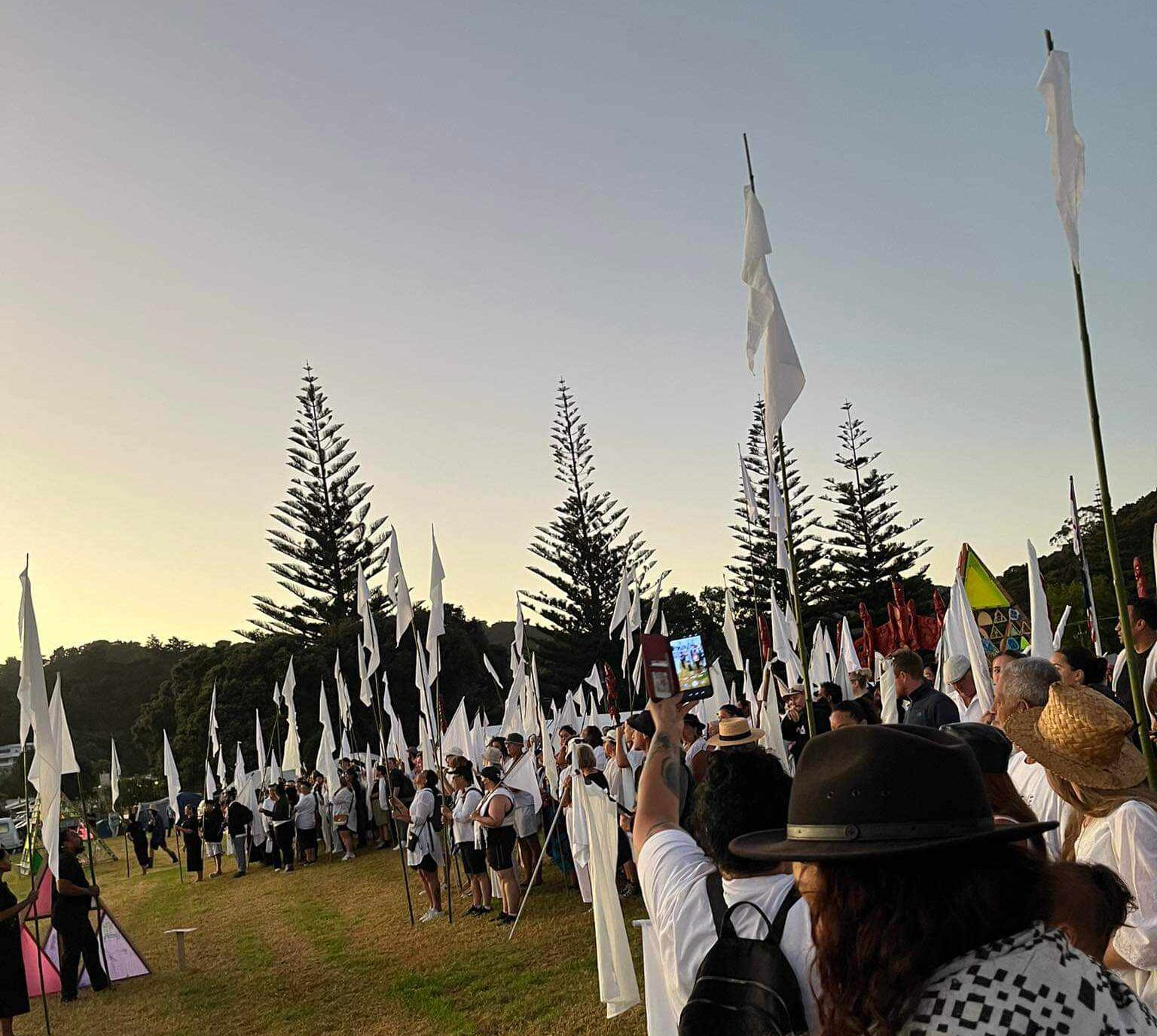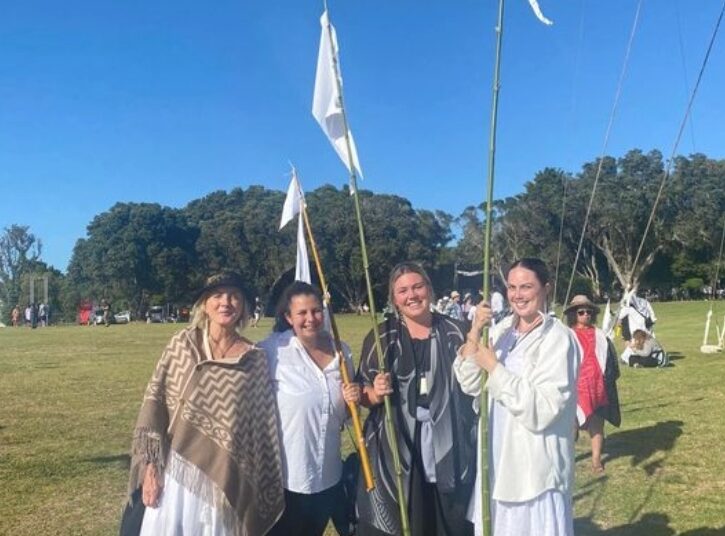‘We’re not just here as nurses — first and foremost, we’re Māori.’
Auckland nurse manager Marina Parata, who brought her team of seven kaiārahi nāhi — clinical nurse specialists — from Auckland’s Te Whatu Ora / Te Toka Tumai planned surgery unit, said the wairua (spirit) was “amazing” at Waitangi.
“It gave us an absolute feeling of groundedness now we’re back at work,” she said. “The mauri [life force] was amazing.”
In a unique initiative, Parata’s team works to identify and prioritise Māori patients on surgical waiting lists.
Frontline nurses were working hard to address health disparities for Māori – shorter life spans, lack of engagement with hospitals and health services and worse health outcomes.
Many nurses felt the closer they worked with other colleagues, the better the outcome would be for Māori and more engagement was likely with health services.
Working together “with determination” with patients and their whānau, to achieve equitable outcomes was crucial.
“We can’t be treated as equals – our outcomes are still inequitable.”
Parata said it was important for Māori nurses to “immerse ourselves” in mātauranga (Māori knowledge) as part of their work.
“We’re not just here as nurses — first and foremost, we’re Māori.”
“From people who have a lot of influence on decisions in our country, I couldn’t believe some of the ignorant thinking and disrespectful behaviour,” Nuku told Kaitiaki Nursing New Zealand.
Nuku attended Te Tiriti o Waitangi commemorations at the Waitangi Treaty Grounds along with NZNO’s college of primary health nurses college chair Tracey Morgan and other Te Rūnanga representatives from Te Tai Tokerau.
‘He completely nullified the significance of whakapapa, of our long connection, as tāngata whenua.’
A fiery pōwhiri greeted Prime Minister Christopher Luxon, ACT Party leader David Seymour and New Zealand First Party leader Winston Peters when they arrived on the upper Treaty grounds on Monday. The wero was met with equal intransigence by the leaders, including Peters who — after scolding the crowd for bad manners — rapidly departed for “important” appointments with overseas ambassadors.
Seymour did manage to finish his kōrero about the importance of tino rangatiratanga (self-determination) for all despite being almost drowned out by waiāta — a common technique on marae to move on those who talk too much, Nuku said.
His comments that there should be no distinction between recent immigrants and those with historical whakapapa were hurtful, Nuku said.
“He completely nullified the significance of whakapapa, of our long connection, as tāngata whenua, of this whenua [land], and diminished us with a flick of his words.”
The notion of tino rangatiratanga — a te Tiriti article in the original te reo version giving Māori continuing full chieftainship over their land and taonga in the face of British settlers — for all was “ridiculous” and made no sense, she said.
‘We can’t be treated as equals, our outcomes are still inequitable.’
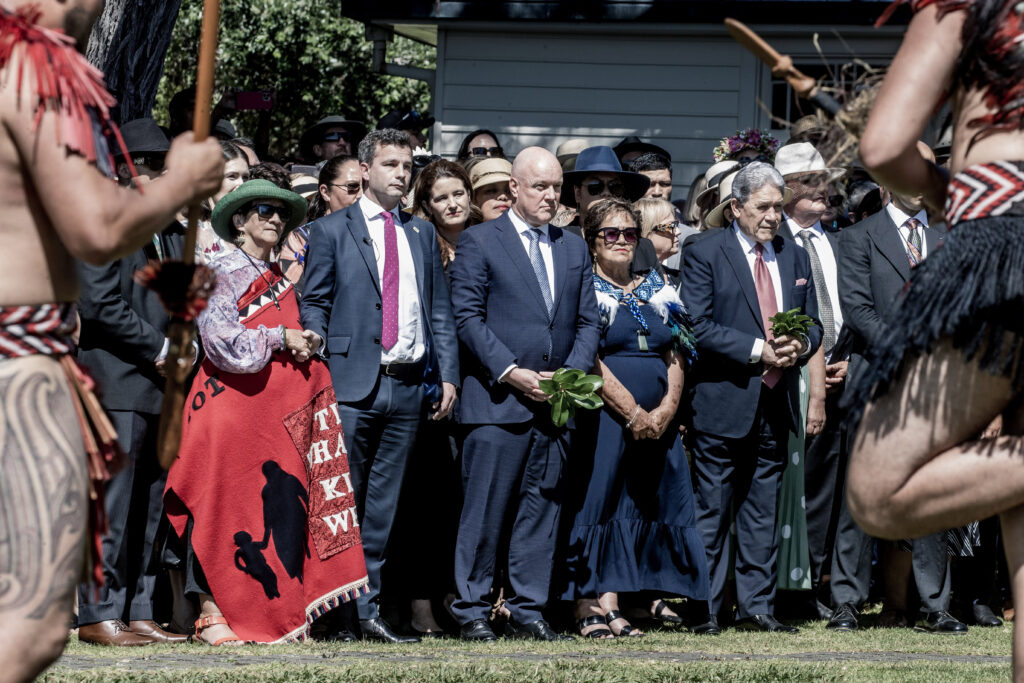
‘Now they’ve seen how quickly that can be whipped away under their feet.’
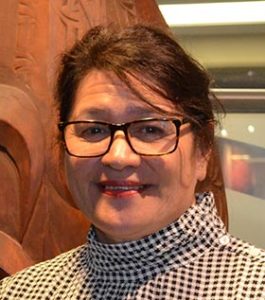
Luxon, too, has been derided for repeating much of his 2022 Waitangi speech word for word — a move which signals a lack of respect for the event and “tramples on the mana” of Māori, Nuku said.
Waitangi was always a time to reflect on the achievements of tīpuna — ancestors — who had declared independence from the Crown as early as 1835 with the He Whakaputanga declaration of independence — considered the parent document to te Tiriti, she said.
We came to ‘look the taniwha in the eye’
“But this year was a physical show of unity — because of the political discourse and wanting to hear the politicians yourself — to actually look the taniwha in the eye and hear that kōrero.”
She said it was crucial to attend, at a time the unique rights of tangata whenua were under attack.
‘You could just feel the wairua, everyone was pumped up.’
Nuku, who has attended many Waitangi Day events at the marae, said 2024’s had been “like no other”.
“It had a completely different feel about it. You could just feel the wairua, everyone was pumped up. Māori and non-Māori, tangata tiriti, young and old people — everybody was harmonised around the kaupapa of unity and it was really cool to see.”
Walking onto the marae as part of Māori activist Tame Iti’s silent dawn hikoi had been a powerful experience.
“Tame Iti and also the rangatahi [young people] with him — I’ve never seen a group of rangatahi so driven, so focused.”
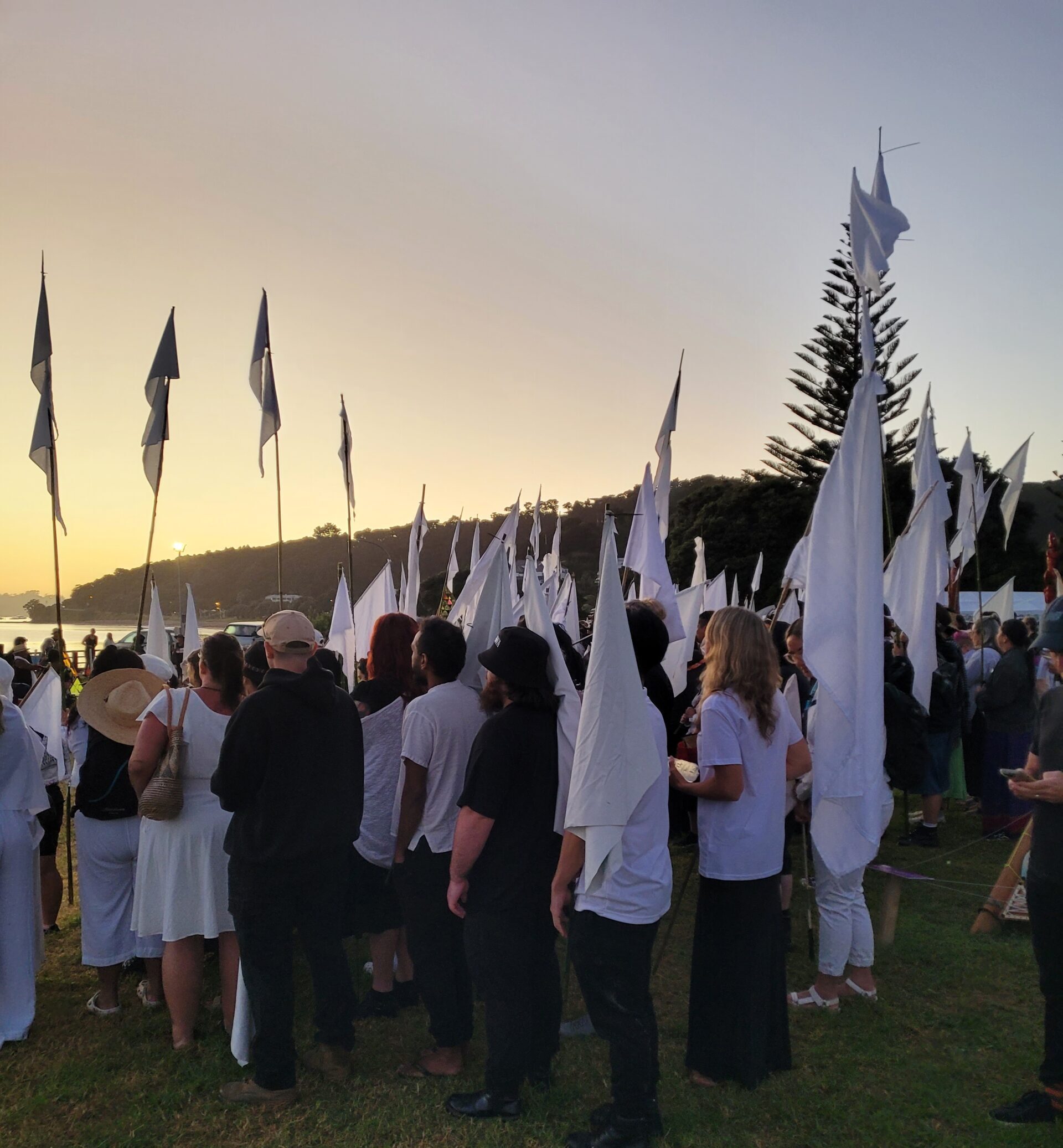
As the day broke, you could see the “full force” of people’s passion in their eyes, she said. “It was captivating . . . just so powerful.”
‘The battle ahead’
Nuku said hearing Government leaders in person had given her a “better sense of the battle ahead” for her own whānau as well as nurses and kaiāwhina on the front lines.
“It gave me and my family more reason to organise, to unify and to be vocal against the shift to review te Tiriti. It just put the fire in our belly to carry on.”
She now wanted to see nurses and kaiāwhina join the groundswell of unified opposition to Māori-hostile policies such as the dismantling of Te Aka Whai Ora, ACT’s proposed te Tiriti review and other policies such as rolling back te reo Māori in government departments — along with NZ First’s proposed review of the Waitangi Tribunal’s powers.
‘It gave us an absolute feeling of groundedness now we’re back at work.’
Māori nurses — many of whom had given evidence in the Waitangi Tribunal health services inquiry 2575 — expected more would be delivered under Te Aka Whai Ora.
“Now they’ve seen how quickly that can be whipped away under their feet.”
With the same happening for SmokeFree Aotearoa, Nuku believed nurses were ready to “stand up and disrupt”.
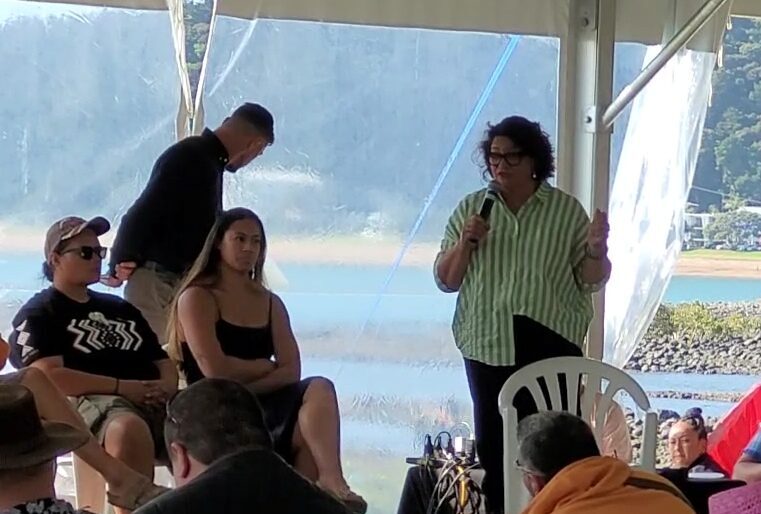
Planning was underway for workshops, webinars and working groups, both within and outside NZNO, and Nuku hoped to see a growth in nurse activism — whether quietly, in the style of the late Moana Jackson, or less quietly in the vein of constitutional lawyer-activist Annette Sykes.
Sykes — who worked closely with NZNO during the Waitangi health services 2575 claim where Māori nurses gave evidence — also took the paepae (speaker’s platform) at Waitangi to challenge Seymour for “tinkering” with te Tiriti via his Treaty Principles bill. He had presented “rewritten lines in te reo Māori to the nation that don’t make any sense”, Sykes said.
Long-time Waitangi activist Hone Harawira also pulled no punches, accusing Seymour of trying to “gut” te Tiriti.
“You and your shitty-ass bill are going down the toilet.”
Māori-led hospitals by 2040?
Speaking on a panel at Waitangi, Nuku also called for a Māori-led health service “immersed in mātauranga [Māori knowledge] to be set up by 2040.
“Not another hospital that runs under the same governorship as the Crown — a service that is fully immersed in matauranga,” she said. And it would be for Māori to decide how to staff it — “they won’t hold the power and determine when we come in”, she said.
“That is what 2040 looks like for our nurses.”
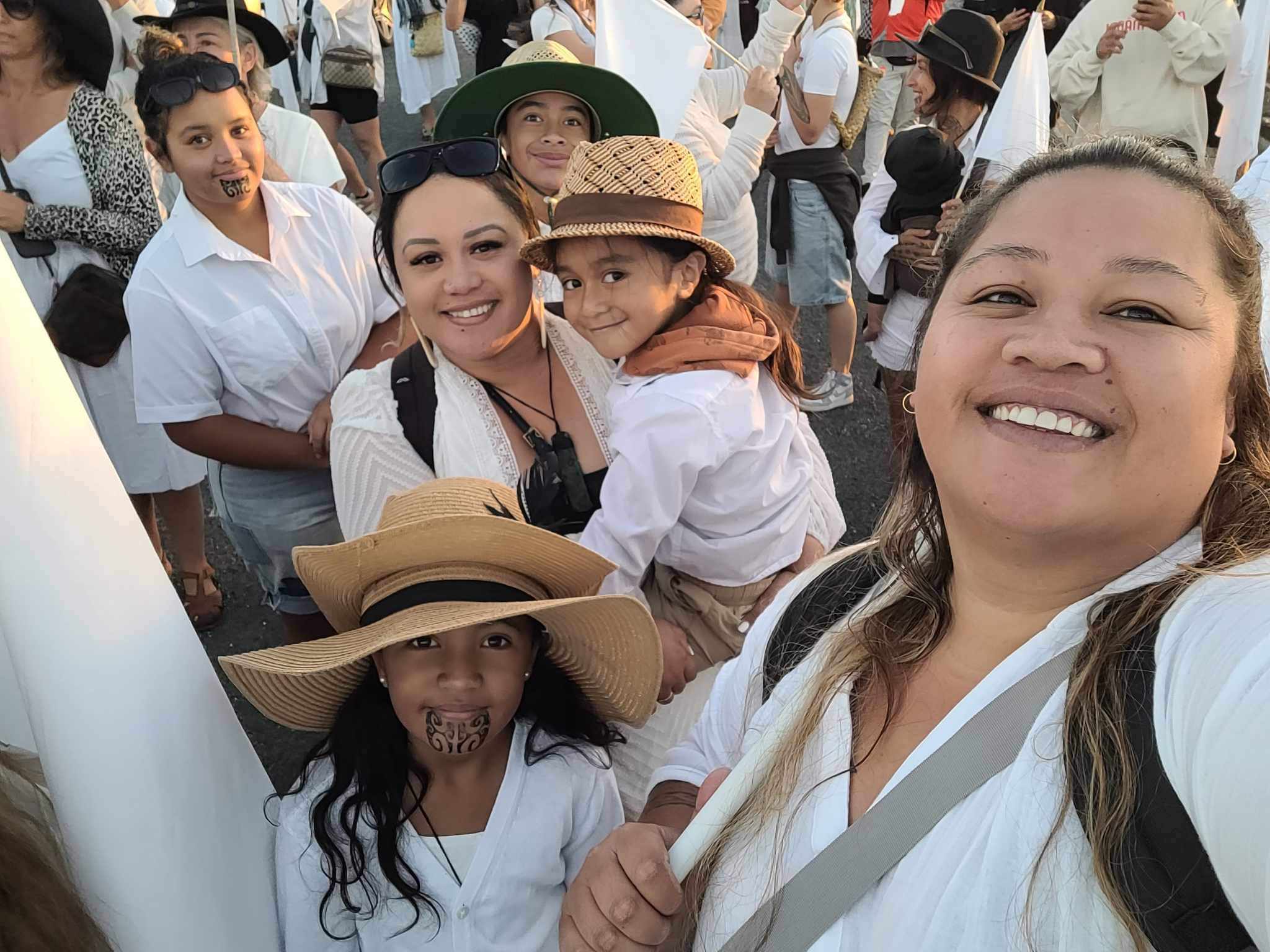
Nuku also called on the Crown to pay Māori and iwi nurses the same as other sectors.
“Our Māori nurses stood up [during COVID], they were the ones who went into communities – they were the ones who risked their lives to support whānau. And they’re still now, after the crisis, putting their hand up to be recognised for the pay they deserve.”
New Zealand First’s Minister for Regional Development, Oceans and Fisheries and Resources Shane Jones claimed nursing had been “gentrified” in recent years as a profession beyond the reach of many working class Māori.
